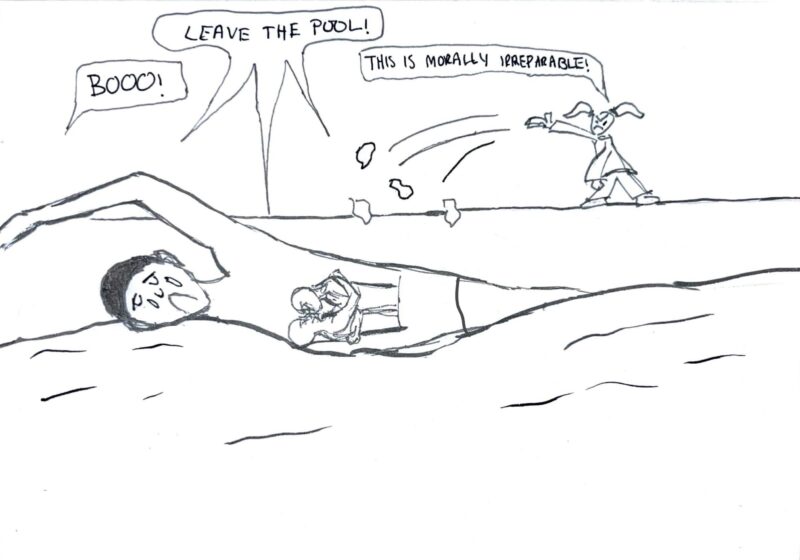By Darcy JohnsonWhile many people know that roughly 58,000 soldiers died in the Vietnam War, far fewer realize that about 51,000 women were killed in those same years by men who supposedly loved them. One program that attempts to publicize such tragedies is the Clothesline Project. Started in Massachusetts in 1990, the project now reaches as far as Tanzania, giving voice to women in 41 states and five countries.The Women’s Caucus has been participating in the project since the early nineties and teamed up for the first time with Alpha Phi this year. “It was really a huge success,” President of Women’s Caucus and senior Jenny Richter said. Survivors of such violence, friends, and families of both those who survived and those who did not design the shirts themselves, allowing victims of violence a conduit for speaking out and for healing. The process of designing a shirt enables each woman to lend a voice to her experience of an often horrific and unspeakable ordeal that has forever changed the course of her life. The usual practice of color-coding the shirts was not observed at UR. Nevertheless, students found it appealing. “I thought it was very thought provoking,” freshman Margaret Lindstrom said. “It really caught my eye.” Freshman Steve Privitera agreed. “I thought it was great,” he said.The project is also intended to show those who still remain silent that they are not alone in their suffering. By leaving their shirts hanging on the line, the victims can literally turn their back on some of the pain of their experiences and try to move on. Gloria Steinem, a feminist author and the founder of Ms. Magazine once said, “The most dangerous place for a woman, statistically speaking, is not in the street – it’s in her own home.” Through programs such as this, women can help confront against this painful truth. Johnson can be reached at djohnson@campustimes.org.
April Fool's
Exclusive interview: the little guys inside the Wilco speakers
In an exclusive interview with the CT on Sunday, I sat down with Dirm Pittleford, the chieftain of the little guys in the Wilco speakers, to find out more.
April Fool's
Good advice Brian
Well, that’s too bad – I’m actually just going to gatekeep all of this information. You won’t get a peep out of me.
Bad Tattoo
This is awkward: I have a full back tattoo of Kanye and Jay-Z passionately embracing
Last week, I was at the public pool, about to swim a few laps, but I couldn’t even make it through one without being relentlessly mocked for my tattoo.



